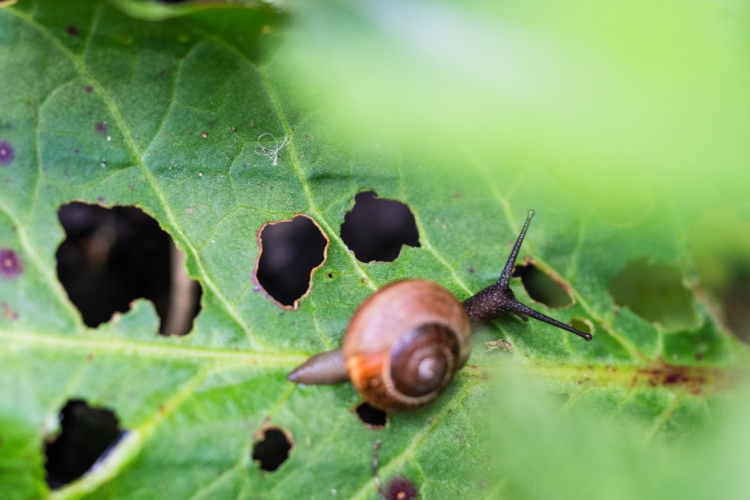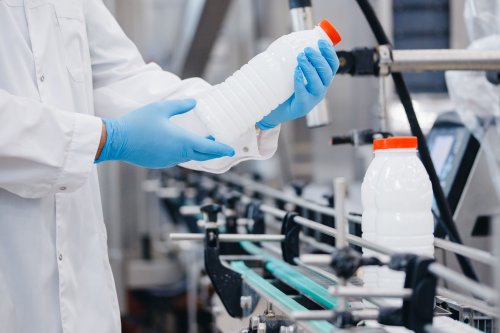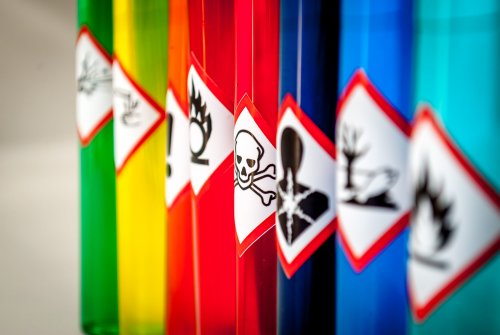Pest control is an important part of home maintenance and keeping your property in order.
Pests can cause damage to your home, spread diseases, contaminate food sources and be a nuisance.
It is important to know the different types of pest control that are available so that you can choose the best methods for controlling pests on your property.
We will discuss the different types of pest control, how they work and when they should be applied.
Types Of Pest Control
There are a variety of different methods that can be used to control pests, and we will be focussing on general groups here.
Physical pest control is one of the oldest forms, which involves using traps or netting to physically remove pests from an area.
Biological pest control involves introducing predators, parasites and diseases that target specific types of pests.
Chemical pest control uses pesticides and other toxic substances to kill pests.
Physical Pest Control
This control involves using physical barriers and traps to keep pests away.
Examples of this type of pest control include sticky tape, fly swatters, glue boards and window screens.
Physical pest control can be effective if used properly but it must be used frequently in order to remain effective.
Chemical Pest Control
This type of control uses chemical agents such as insecticides, herbicides and rodenticides to kill or repel pests.
Chemical pest control can be very effective in controlling a wide range of pests but it can also be dangerous if not used properly.
Care should be taken when using chemical pest control products, as they can be dangerous for humans and pets if inhaled or ingested.
Biological Pest Control
Biological pest control involves using natural predators and parasites to fight pests.
This type of pest control is generally considered the safest and most effective method for controlling pests.
Biological pest control can be used on a wide variety of pests and can be very effective if done correctly.
How Pest Control Works
Pest control works by either killing or repelling pests.
Physical pest control involves trapping and removing the pests, while chemical pest control uses toxic substances to kill or repel them.
Biological pest control uses natural predators, parasites and diseases to target specific species of pests.
Each type of pest control has its own benefits and drawbacks and should be used accordingly.
Physical Pest Control
Physical pest control works by using physical barriers and traps to physically prevent pests from entering your home or property.
This can include things like window screens, fly swatters, sticky tape and glue boards to trap the pests. Physical pest control should be used frequently in order to remain effective.
Chemical Pest Control
Chemical pest control uses chemical agents such as insecticides, herbicides and rodenticides to either kill or repel pests.
These chemicals can be sprayed directly onto the pest in order to kill them or they can be applied as a barrier around your property.
Chemical pest control should be used carefully and according to label instructions in order to minimize risks associated with using these products.
Biological Pest Control
Biological pest control is the use of natural predators and parasites to fight pests.
This type of pest control works by introducing beneficial insects or bacteria that can help to naturally combat pests on your property.
These beneficial organisms will typically feed on the pest and/or disrupt their life cycle, which can be an effective way to reduce or eliminate pests without using harmful chemicals.
When To Apply Pest Control
When to apply pest control will depend on the type of pest you are trying to control.
Physical pest control is most effective when used frequently as pests can quickly adapt and find ways around these barriers if they are not changed or replaced often.
Chemical pest control may need to be applied more regularly, depending on the type of pests that you have.
Biological pest control typically works best when used in combination with other methods as it may take some time for the beneficial organisms to establish themselves and start controlling pests.
In general, pest control should be applied whenever there is evidence of a pest infestation.
This could include seeing live or dead pests, or noticing damage from them such as chewed wood, droppings or holes.
Applying pest control as soon as possible can help to prevent a larger infestation from occurring and can help reduce the amount of damage that may be done.
If you have recurring pest problems, it is best to use a combination of physical, chemical and biological pest control methods in order to ensure that your property is protected.
Choosing The Right Type Of Pest Control For Your Property
Choosing the right type of pest control for your property depends on a number of factors.
First, you will want to identify what kind of pests are present on your property and the level of infestation that has occurred.
This will help you determine which type of pest control is best suited for the situation.
For physical pest control, you should consider the type of pests you are dealing with and the size of your property.
For example, if you have a small property with a limited number of pests, then using fly swatters or sticky traps may be enough to keep them at bay.
However, if you have larger areas with more than one type of pest present, then it may be more beneficial to use window screens or mosquito netting as a physical barrier.
Chemical pest control should be used carefully and according to label instructions in order to minimize risks associated with using these products.
It is important to identify the type of pests that are present, as different chemicals are designed for specific types of pests.
You should consider the size of your property and the amount of access that pests have in order to determine how much chemical product should be applied.
Biological pest control is most effective when used as part of an integrated pest management approach, as it can take some time for beneficial organisms to establish themselves on a property.
It is important to identify which types of pests are present and the level of infestation that has occurred in order to determine which beneficial organisms will be most effective.
Final Word
Pest control can be a very effective way to keep pests away from your property and protect it from damage.
However, the type of pest control that you choose will depend on several factors such as the size of your property, the types of pests present and their level of infestation.
Physical pest control works best when used frequently while chemical and biological methods may need to be applied more regularly depending on the situation.
It is important to consider all these elements in order to ensure that you are using an appropriate method for controlling pests on your property.





